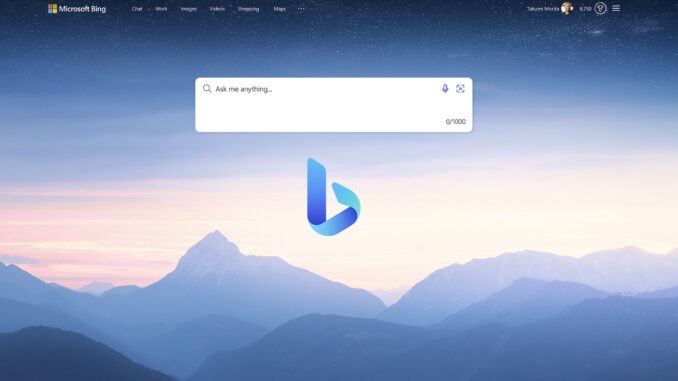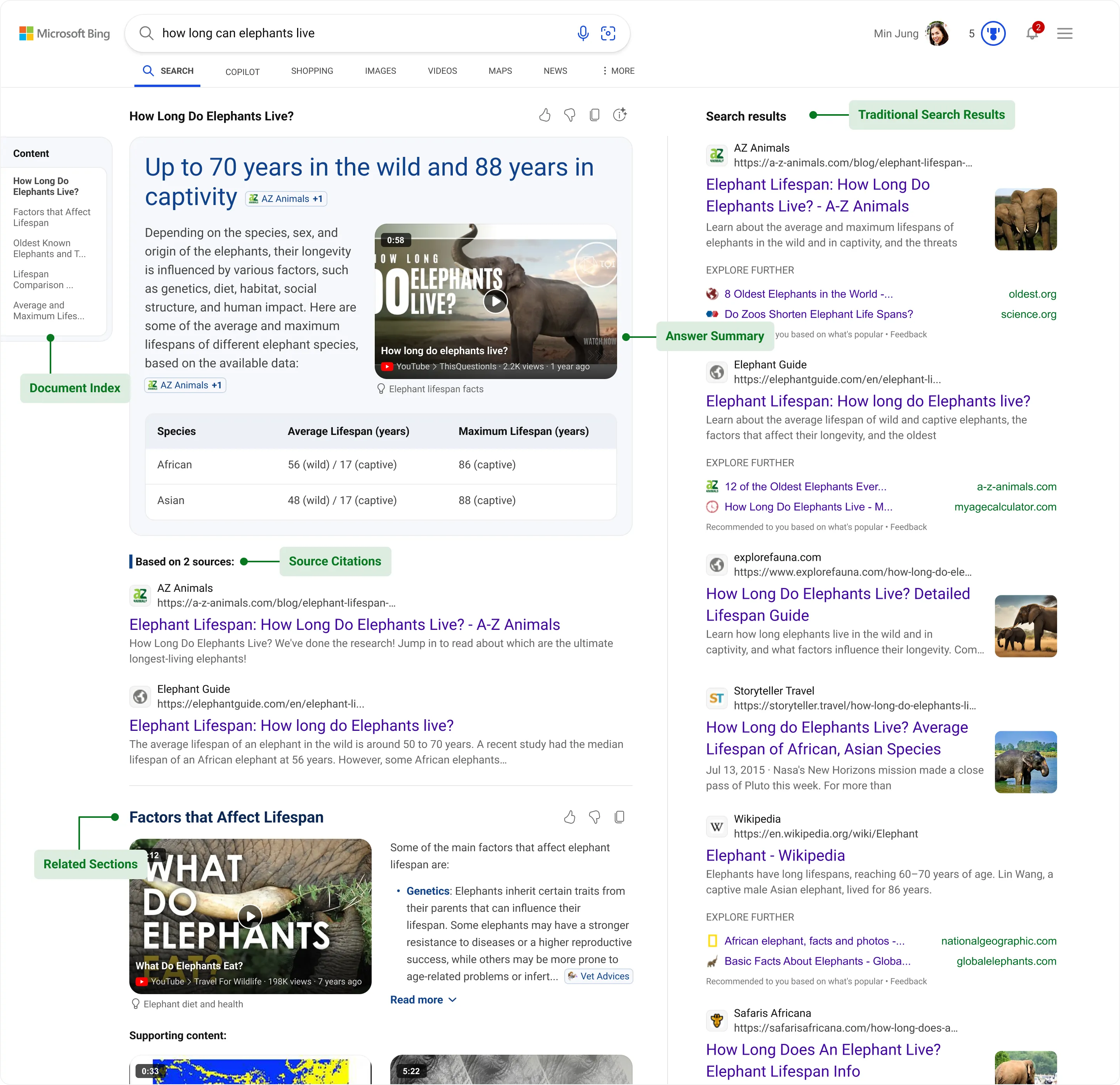
Microsoft has announced the addition of AI-powered features to its Bing search engine, following a similar move by Google. This development aims to enhance the user experience by providing more accurate and dynamic search results. The integration of generative AI and large language models is set to revolutionize the way search queries are handled.
AI Overviews and Enhanced Search Capabilities
During the Google developer conference in May, the company introduced “AI Overviews,” a feature that incorporates AI-generated summaries into search results. Although it had a mixed reception, the feature has persisted. Microsoft has now taken a similar approach by integrating generative search features into Bing. The company claims that this new experience combines Bing’s traditional search results with the capabilities of large and small language models to create bespoke and dynamic responses to user queries.

Market Competition and AI Adoption
This announcement was somewhat overshadowed by OpenAI’s unveiling of SearchGPT, which also aims to challenge Google’s dominance in the search engine market. As of January 2024, Google holds over 81% of the desktop search market share, while Bing accounts for just 10.51%, according to Statista. Microsoft’s move is part of an effort to close this gap by offering a more tailored and useful search experience.
Detailed and Relevant Search Results
The new Bing search results page will display AI-generated responses based on models trained on millions of datasets. This approach aims to provide accurate and relevant information to users. Additionally, Bing will feature a “Document Index” that offers deeper insights into the topics being searched. To ensure transparency and credibility, Bing will include the sources of these AI-generated responses, with clickable links directing users to the original information.

Gradual Rollout and User Feedback
Microsoft has begun rolling out this feature to a select group of users, adopting a cautious approach to its implementation. The company is committed to incorporating user feedback to refine the feature further. Traditional search results will still be available, albeit moved to a sidebar on the right side of the page, ensuring that users have access to a familiar search experience.
Impact on Content Publishers and Source Verification
The introduction of AI-curated search results raises concerns about its impact on content publishers. Microsoft asserts that the “generative search experience” is designed with these concerns in mind, emphasizing the retention of traditional search results and the inclusion of more clickable links, similar to references in academic papers. This design aims to maintain the value of original content while enhancing the user experience.
Evolving Search Engine Landscape
The search engine market is becoming increasingly competitive, with new players like OpenAI’s SearchGPT entering the fray. Over 10,000 users are currently testing this feature, which seeks to provide a more intuitive and responsive search experience. Interestingly, Microsoft, a major investor in OpenAI, has not used its Copilot branding in this latest announcement, despite Bing Chat (now rebranded as Copilot) relying on OpenAI’s GPT-4 and Dall-E 3 technologies.
Challenges and Future Directions
As AI-powered search tools continue to evolve, significant challenges remain. These include combating misinformation, avoiding the generation of false information (commonly known as “hallucinations” in AI), and ensuring proper citation of sources. Microsoft’s careful rollout and emphasis on feedback indicate a cautious approach to these challenges, aiming to balance innovation with reliability.
For more insights, explore Meta’s AI in search engines overview
Learn more about MicroSoft Bing innovation




Be the first to comment